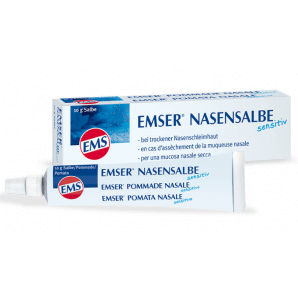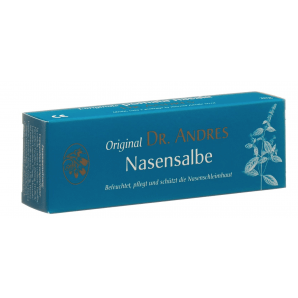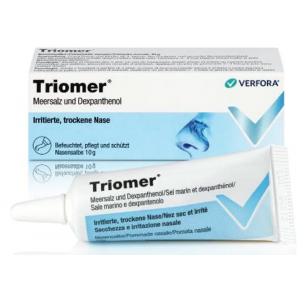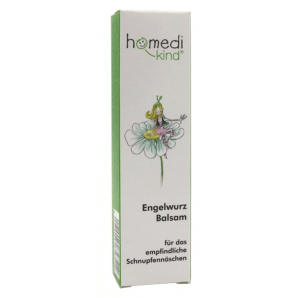-
nutrition
-
Food Supplement
- nutritional supplements by topic
- amino acids
- Minerals
- vitamin preparations
- Fatty acids
-
superfood supplements
- acerola
- aronia
- artichoke preparations
- ashwagandha
- astaxanthin
- brewer's yeast
- bee pollen
- camu camu
- chlorella
- spelled grass
- echinacea
- barley grass
- ginkgo
- grapefruit seed extract
- guarana
- green-lipped mussel
- ginger preparations
- garlic capsules
- turmeric Supplements
- maca
- moringa
- OPC
- roseroot
- saffron preparations
- spirulina
- préparations de la griffe du diable
- medicinal mushrooms
- frankincense preparations
- wheatgrass
-
Food
- healthy snacks
-
beverages
- soft drinks
- Coffee
- milk substitute
- whey drinks
- Juice
- syrup
-
tea
-
various types of tea
- nettle tea
- chai tea
- verbena tea
- fennel tea
- lady's mantle tea
- fruit tea
- green tea
- rosehip tea
- hemp tea
- hibiscus tea
- elderflower tea
- ginger tea
- camomile tea
- herbal tea
- lavender tea
- lime blossom tea
- dandelion tea
- mate tea leaves
- melissa tea
- mint tea
- oolong tea
- orange blossom tea
- marigold tea
- rooibos tea
- rosemary tea
- sage tea
- yarrow tea
- black tea
- licorice tea
- thyme tea
- verbena tea
- alkaline tea
- relaxation tea
- women tea
- love tea
- sleep tea
- pick-me-up tea
- tea selection boxes
- digestive tea
- christmas tea
- winter tea
-
various types of tea
- chewing gums & bonbons
- gluten Free Foods
- cooking & baking
- muesli
- sweets
- diet products
-
Food Supplement
-
sport
- fitness & gymnastics
- muscle / joint pain
- outdoors & camping
- racket sports
- sports nutrition
- Sport drinks
- sports drinking bottles
- water sports & fun
-
personal care
- bath & shower
- fragrances
- facial skincare
- haircare
- hands & feet
- body & skincare
- intimate care
- make-up
- mouth & teeth
-
Health
- allergies & skin diseases
- bladder & prostate
- Diabetes
- blood circulation
- Withdrawal
- Cold & Flu
- Equipment & Fasttests
- hygiene & medical supplies
- Incontinence
- Love Life
- Stomach & Gut
- Restlessness & Sleep Disorders
- Wound care
-
Mother & Kids
- Pregnancy
- Breastfeeding
- baby
- kids
-
home use
- bathroom accessories
- office supplies
- electrical supplies
- garden & pests
- pillows & Blankets
- kitchen utensils
- lamps
- party items
- room fragrances
- cleaning products
- textiles
- pet supplies
COLD: REDUCE THE RISK OF CONTAMINATION WITH NASAL OINTMENT
The most important things in brief
- How many liters of air does our nose have to circulate every day to protect our airways - what do you think?
- The answer: It's almost an unbelievable 10,000 liters!
- The air not only has to be humidified and heated before it hits the mucous membranes - it also has to be cleaned.
- If the mucous membranes are still damaged, nasal ointment helps with regeneration and thus prevents infection.
10,000 liters of air is a huge volume. If we didn't have glands in the mucous membranes that produce secretions without which the mucous membranes would dry out and crack, we would be permanently vulnerable to sores and infections. Once the nasal mucous membranes are dry, nasal ointments are a good idea to restore the natural structure of the mucous membranes - which is why nasal ointment also helps to reduce the risk of infection.
After the cold is before the infection
Especially with a cold, the mucous membranes react irritated, not least due to the constant blowing of the nose. Then they are sore – and thus also open to further infections. The idea that the immune system is particularly strengthened during and shortly after a cold is therefore not entirely correct. It is now even easier for other viruses and bacteria to penetrate the organism. Then nasal ointment helps to repair the cracked mucous membrane. But it's not just a bad cold that scratches the nasal mucosa - there are plenty of other causes. If you stay in heated rooms for a long time or take certain medications, the secretion often dries up quickly. Hay fever caused by pollen or other allergies such as animal hair or house dust mites also dry out the mucous membranes and encourage the penetration of infectious foreign bodies. And last but not least, various diseases such as diabetes and advanced age lead to the mucous membrane drying out.
How does nasal ointment work against infection with a cold?
As we age, the number of mucous membrane cells gradually decreases, which causes the nose to dry out more quickly. Then a nasal ointment is always valuable. But what exactly does this ointment do, how does it manage to prevent the penetration of pathogens as far as possible? Once you have applied the nasal ointment, usually in the area of the nostrils, but also in the atrium and on the inner wings, it covers the nasal mucosa like a protective film. It constantly releases moisture, which ensures that the mucous membrane soon no longer shows any cracks. Now viruses and bacteria, but also pollen, house dust and other foreign bodies have it much more difficult to settle on the mucous membrane.
Keep the mucous membrane of the nose in good condition
You must protect the mucous membranes well and keep them moist. Otherwise, they themselves quickly become a breeding ground for bacteria and other invaders, especially as they crust and harden. If this irritation persists for a longer period of time, the nasal septum and nasal conchae develop small holes and become even more susceptible to infections such as colds. Incidentally, in addition to the triggers of a dry nasal mucosa described above, there are also stimuli that are triggered mechanically. In plain English: frequent picking of the nose. But cigarette smoke can also be a cause.
Related products
Related posts
-
 Which vitamins are important in winter?
All vitamins are important - all year round. In winter, however, some of these active ingredients are particularly...Read more
Which vitamins are important in winter?
All vitamins are important - all year round. In winter, however, some of these active ingredients are particularly...Read more -
 What are the symptoms of a vitamin D deficiency?
Are you unmotivated, tired, sleepless and listless in autumn and winter? Vitamin D deficiency could be a reason for...Read more
What are the symptoms of a vitamin D deficiency?
Are you unmotivated, tired, sleepless and listless in autumn and winter? Vitamin D deficiency could be a reason for...Read more -
 Hygiene and face masks - what types are there?
Posted in: Health20.10.2020Hygiene and protective masks have always been useful in hospitals, in medical practices and in care, Corona has made...Read more
Hygiene and face masks - what types are there?
Posted in: Health20.10.2020Hygiene and protective masks have always been useful in hospitals, in medical practices and in care, Corona has made...Read more -
 What are insomnia and what can you do about it?
Posted in: Health23.10.2020Sleeping seems like a simple thing. And yet many people suffer from insomnia, difficulty falling asleep and staying...Read more
What are insomnia and what can you do about it?
Posted in: Health23.10.2020Sleeping seems like a simple thing. And yet many people suffer from insomnia, difficulty falling asleep and staying...Read more -
.jpg) FFP1, FFP2, FFP3 - what are the differences between the masks?
Posted in: Health23.10.2020The FFP mask can now be seen more and more often in public, no longer just in nursing or in the medical field. Not...Read more
FFP1, FFP2, FFP3 - what are the differences between the masks?
Posted in: Health23.10.2020The FFP mask can now be seen more and more often in public, no longer just in nursing or in the medical field. Not...Read more




